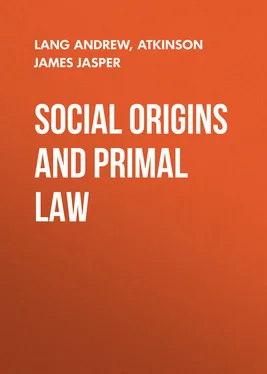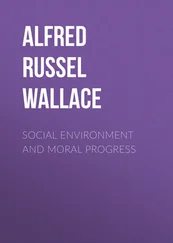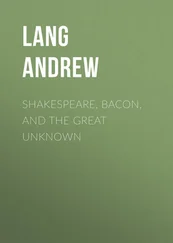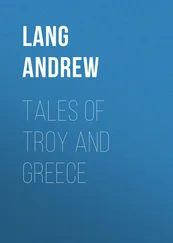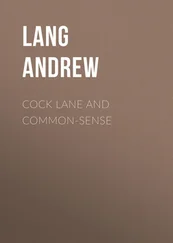Andrew Lang - Social Origins and Primal Law
Здесь есть возможность читать онлайн «Andrew Lang - Social Origins and Primal Law» — ознакомительный отрывок электронной книги совершенно бесплатно, а после прочтения отрывка купить полную версию. В некоторых случаях можно слушать аудио, скачать через торрент в формате fb2 и присутствует краткое содержание. Жанр: foreign_antique, foreign_prose, на английском языке. Описание произведения, (предисловие) а так же отзывы посетителей доступны на портале библиотеки ЛибКат.
- Название:Social Origins and Primal Law
- Автор:
- Жанр:
- Год:неизвестен
- ISBN:нет данных
- Рейтинг книги:3 / 5. Голосов: 1
-
Избранное:Добавить в избранное
- Отзывы:
-
Ваша оценка:
- 60
- 1
- 2
- 3
- 4
- 5
Social Origins and Primal Law: краткое содержание, описание и аннотация
Предлагаем к чтению аннотацию, описание, краткое содержание или предисловие (зависит от того, что написал сам автор книги «Social Origins and Primal Law»). Если вы не нашли необходимую информацию о книге — напишите в комментариях, мы постараемся отыскать её.
Social Origins and Primal Law — читать онлайн ознакомительный отрывок
Ниже представлен текст книги, разбитый по страницам. Система сохранения места последней прочитанной страницы, позволяет с удобством читать онлайн бесплатно книгу «Social Origins and Primal Law», без необходимости каждый раз заново искать на чём Вы остановились. Поставьте закладку, и сможете в любой момент перейти на страницу, на которой закончили чтение.
Интервал:
Закладка:
But Mr. Fison and others have argued powerfully against this theory. 38 38 Kamilaroi and Kurnai , p. 132. 1880.
Moreover, we find male relationships, as we saw – 'descent counted in the male line' – among the Arunta of Central Australia, whom Mr. J. G. Frazer regarded, in 1899, as actually 'primitive;' while the neighbours of the Arunta, the Urabunna, reckon through the female line. 39 39 Spencer and Gillen, p. 70. Frazer, Fortnightly Review , April, May, 1899.
Mr. Crawley, for various reasons, says, 'the famous Matriarchal theory' (the prepotency and dominion of women) 'was as exaggerated in its early forms as was the Patriarchal… It is a method of tracing genealogy, more convenient in polygamous societies and more natural in primitive times when the close connection of mother and child during the early days of infancy emphasises the relation.' 40 40 The Mystic Rose , p. 460.
Dr. Westermarck argues to a similar effect. 41 41 History of Human Marriage , pp. 105-113.
His motive is to discredit the theory of promiscuity, and consequent uncertainty of fatherhood, as the cause of reckoning on the spindle side. But the Arunta, who reckon on the sword side, actually do not even know that children are the result of sexual intercourse, according to Messrs. Spencer and Gillen. How they can have any idea of blood-kinship at all is, therefore, the mystery. It may perhaps be argued that they have none. But these ignorant Arunta reckon descent through the male line – while the Royal Picts, in early Scotland, infinitely more civilised, reckoned by the female line.
For myself, I still incline to the opinion 42 42 Tylor, J. A. I. xviii. 3, 254.
that the reckoning of descent through the woman is the more archaic method, and the method that, certainly, tends to dwindle and disappear, as at last it did among the Picts. This applies to human society, not to that of Mr. Atkinson's hypothesis, in which the question is not of kin, but of property. 'Every female in my crowd is my sole property,' says – or feels – Mr. Atkinson's patriarchal anthropoid, and the patriarch gives expression to his sentiment with teeth and claws, if he has not yet learned to double up his fist, with a stone in it. 'These were early days.'
THEORIES OF EXOGAMY. MR. MCLENNAN'S THEORY
In any case, Mr. McLennan's hypothetical first groups, like Mr. Atkinson's, were very low indeed. They developed exogamy, not (as in Mr. Atkinson's theory) through sexual jealousy on the part of the sires, but, first, through regular female infanticide. This practice, being reasonable, could not prevail among Mr. Atkinson's anthropoids. 43 43 The practice however, is attributed to tame canary birds.
Girl babies being mostly killed out, women became scarce. Neighbouring groups being hostile, brides could only be procured by hostile capture. Each group thus stole all its brides and became exogamous, and marriage inside the group became a sin, by dint of 'a prejudice strong as a principle of religion.'
This theory of Mr. McLennan's is, I think, quite untenable. The prevalence of female infanticide, at the supposed very early stage of society, is not demonstrated, and did not seem probable to Mr. Darwin. Even if it existed, it could not create a prejudice against marrying the few women left within the group. Mr. McLennan, unhappily, was prevented by bad health, and death, from working out his hypothesis completely. His most recent statement involves the theory that the method of the Nairs of Malabar, living in polyandrous households (many men to each woman) was the earliest form of 'marriage.' But people who, like the Nairs, dwell in large households, are far indeed from being 'primitive.' 'A want of balance between the sexes' led, Mr. McLennan held, to 'a practice of capturing women for wives,' and was followed by 'the rise of the law of exogamy.' The first prohibition would be against capturing women of the kindred (marked by the totem), for such capture, if resisted, might involve the shedding of kindred blood. Women being scarce, through female infanticide, kindred groups would not give up or sell their women to each other (though to the males of the groups, such women could not be wives), nor could women be raided from kindred groups, as we saw. So they would be stolen from alien groups, 'and so marriages with kindred women would tend to go into desuetude.' The introduction of captured alien wives would change the nature of matrimonial relations. Under the Nair system 'a woman would live in the house of her mother, and under the special guardianship and protection of her brothers and her mother's brothers. She would be in a position of almost absolute independence of her husbands…'
But really pristine man and woman can have had no houses, no matriarchal rule of women. The Nairs, not being primitive, have houses, and their women have authority: pristine man was not in their condition. However, captured alien wives would, Mr. McLennan argues, be property, be slaves; and men would find this arrangement (now obsolete) so charming that polyandry and the reign of woman would go out. The only real legal marriage would be wedlock with an alien, a captive, a slave woman. Marriage with a woman of the same stock would be a crime and a sin. It would be incest. 44 44 Studies in Ancient History , second series, pp. 57-65.
Really it would be, at worst, concubinage.
This theory seems untenable at every point, community of wives, female infanticide, household life, supremacy of women in the household, living with a non-captive wife reckoning as incest, and, in short, all along the line. Even if the prejudice against marrying native women did exist, it could not be developed into the idea of sin – granting that the idea of sin already existed. To be sinful, endogamy within the group must have offended some superstitious belief, perhaps the belief in the totem, with its tabu. 45 45 Cf. Custom and Myth (A. L.), p. 258.
MR. CRAWLEY'S THEORY
To disengage from his learned book, The Mystic Rose (1902), Mr. Crawley's theory of the origin of exogamy is no easy task. He strongly insists on the 'religious' element in all early human thought, and as in 'religion' he includes the vague fears, misgivings, and ideas of 'luck,' which haunt even the least religious of modern men, we may say that 'religion,' in this sense, mingles with the thought of all ages. The present writer, like Dr. Johnson, is an example of the 'religious' character, and of Mr. Crawley's remark that 'human nature remains potentially primitive.' To the 'religious' man or woman (using 'religious' in this sense) the universe is indeed a thing of delicate poise, and may 'break, and bring down death,' if we walk under a ladder, or spill the salt, or enter a doorway with the wrong foot foremost, or fail to salute a magpie, or the new moon. The superstitious anthropologist, of course, knows that all these apprehensions of his are utterly absurd, but the savage is careful and troubled about them. The Philistine, on the other hand, is proud of his conquest of these airy terrors: he 'cannot imagine what people mean by such nonsense,' and, exactly so far as he is sincere, he cannot comprehend early mankind.
Now, as to exogamy, our difficulty is to understand why breach of the rule against certain marriages is, everywhere, so deadly a sin: so black an offence against 'religion.' Mr. Crawley's explanation is not, perhaps, easily to be disengaged from the mass of his work, but it begins in his appreciation of the δεισιδαιμονία of early men, their ever-present sense of 'religious' terrors. 'Thus all persons are potentially dangerous to others, as well as potentially in danger…' 46 46 Mystic Rose , p. 31.
This sense of peril arises 'in virtue simply of the distinction between a man and his fellows.' Much more, then, are women dangerous to men, and men to women, the sexes being so distinct from each other. We know that the most extraordinary precautions are taken to avoid contact with women in certain circumstances, and a well-known story of Sir John Mandeville's is only one case of the fact that the bridegrooms of some races, from a superstitious terror, insist on being made cocus en herbe . Messrs. Spencer and Gillen give the instance of 'the marriage ceremony' (an odious brutality) among the Arunta of Central Australia. 47 47 Spencer and Gillen, pp. 92-93.
It is perhaps intended to deliver the bridegroom from a peril imagined by superstition (as in Mandeville's tale); 48 48 Lord Avebury's view that the 'rite' implies compensation to the other males of the community will be considered later.
and, without it, the Australian would resemble the man derided in the old Scottish song:
Интервал:
Закладка:
Похожие книги на «Social Origins and Primal Law»
Представляем Вашему вниманию похожие книги на «Social Origins and Primal Law» списком для выбора. Мы отобрали схожую по названию и смыслу литературу в надежде предоставить читателям больше вариантов отыскать новые, интересные, ещё непрочитанные произведения.
Обсуждение, отзывы о книге «Social Origins and Primal Law» и просто собственные мнения читателей. Оставьте ваши комментарии, напишите, что Вы думаете о произведении, его смысле или главных героях. Укажите что конкретно понравилось, а что нет, и почему Вы так считаете.
